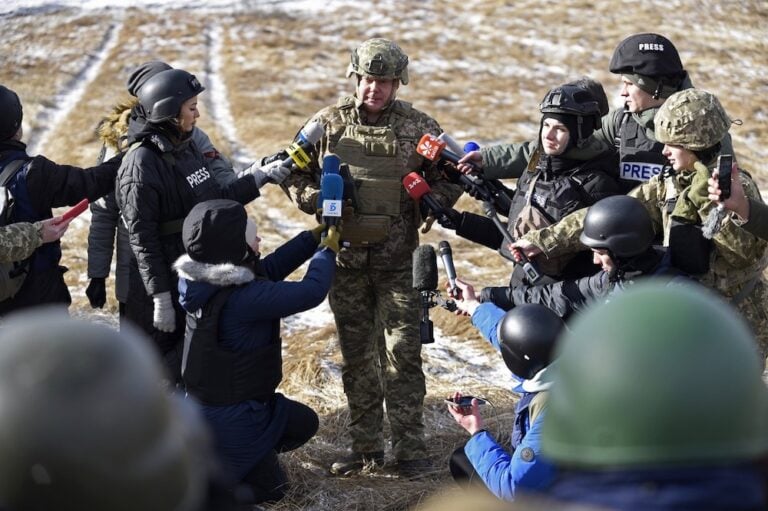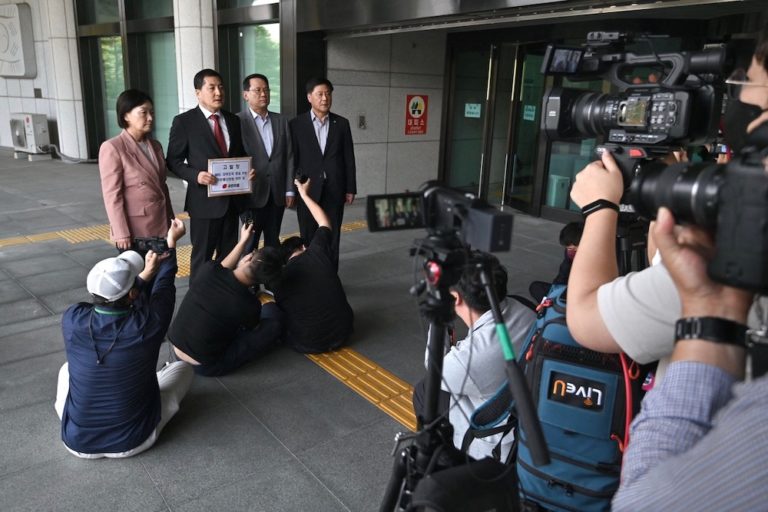(RSF/IFEX) – RSF has called on the South Korean authorities to explain why riot police recently prevented human rights activists from releasing balloons that were to drop radio sets over North Korea. “The government’s job is of course to maintain law and order on its territory but how does sending tiny radio sets to North […]
(RSF/IFEX) – RSF has called on the South Korean authorities to explain why riot police recently prevented human rights activists from releasing balloons that were to drop radio sets over North Korea.
“The government’s job is of course to maintain law and order on its territory but how does sending tiny radio sets to North Koreans threaten South Korea’s security?” the organisation asked in a letter to Government Administration and Home Affairs Minister Kim Doo-kwan. RSF has given its moral and financial backing to the initiative and hopes the authorities will eventually allow it to go ahead.
On 22 August 2003, police prevented scores of activists from releasing about 200 balloons carrying more than 600 radio sets. The incident took place at Chulwon, near the North Korean border. A German doctor, Norbert Vollertsen, was roughed up by the police and hospitalised with a foot injury and bruises. He was trying to fill the balloons with helium despite the police ban.
The project was launched by Korean-born American Pastor Douglas Shin and Vollertsen, who was deported from North Korea in 2001 for criticising the human rights situation in the country. The initiative aimed to give hundreds of North Korean citizens an opportunity to pick up Korean-language broadcasts by foreign stations, including Radio Free Asia, on the solar-powered sets. All radio and television sets in North Korea are designed to only receive state-controlled media.
The project’s organisers said the South Korean Foreign Ministry had been told about it and had not formally objected. However, no official request for permission to stage the event was made. The law allows demonstrations to be banned if the organisers have already been involved in a violent demonstration or if the site of the protest action is considered unsuitable.


